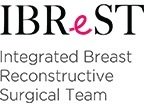Inflammatory Breast Cancer
Inflammatory breast cancer (IBC) is a rare and very aggressive disease in which cancer cells block lymph vessels in the skin of the breast. This type of breast cancer is called “inflammatory” because the breast often looks swollen and red, or “inflamed.”
Inflammatory breast cancer accounts for 1 to 5 percent of all breast cancers diagnosed in the United States. Most inflammatory breast cancers are invasive ductal carcinomas, which means they developed from cells that line the milk ducts of the breast and then spread beyond the ducts.
Inflammatory breast cancer progresses rapidly, often in a matter of weeks or months. Inflammatory breast cancer is either stage III or IV at diagnosis, depending on whether cancer cells have spread only to nearby lymph nodes or to other tissues as well.
Additional features of inflammatory breast cancer include the following:
- Compared with other types of breast cancer, inflammatory breast cancer tends to be diagnosed at younger ages (median age of 57 years, compared with a median age of 62 years for other types of breast cancer).
- It is more common and diagnosed at younger ages in African American women than in white women. The median age at diagnosis in African American women is 54 years, compared with a median age of 58 years in white women.
- Inflammatory breast tumors are frequently hormone receptor negative, which means that hormone therapies, such as tamoxifen, that interfere with the growth of cancer cells fueled by estrogen may not be effective against these tumors.
- Inflammatory breast cancer is more common in obese women than in women of normal weight.
Like other types of breast cancer, inflammatory breast cancer can occur in men, but usually at an older age (median age at diagnosis of 66.5 years) than in women.
Symptoms of inflammatory breast cancer include swelling (edema) and redness (erythema) that affect a third or more of the breast. The skin of the breast may also appear pink, reddish purple, or bruised. In addition, the skin may have ridges or appear pitted, like the skin of an orange (called peau d’orange). These symptoms are caused by the buildup of fluid (lymph) in the skin of the breast. This fluid buildup occurs because cancer cells have blocked lymph vessels in the skin, preventing the normal flow of lymph through the tissue. Sometimes, the breast may contain a solid tumor that can be felt during a physical exam, but, more often, a tumor cannot be felt.
Other symptoms of inflammatory breast cancer include a rapid increase in breast size; sensations of heaviness, burning, or tenderness in the breast; or a nipple that is inverted (facing inward). Swollen lymph nodes may also be present under the arm, near the collarbone, or in both places.
It is important to note that these symptoms may also be signs of other diseases or conditions, such as an infection,mastitis, injury, or another type of breast cancer that is locally advanced. For this reason, women with inflammatory breast cancer often have a delayed diagnosis of their disease.
Minimum criteria for a diagnosis of inflammatory breast cancer include the following:
- A rapid onset of erythema (redness), edema (swelling), and a peau d’orange appearance and/or abnormal breast warmth, with or without a lump that can be felt.
- The above-mentioned symptoms have been present for less than 6 months.
- The erythema covers at least a third of the breast.
- Initial biopsy samples from the affected breast show invasive carcinoma.
Inflammatory breast cancer is treated first with systemic chemotherapy to help shrink the tumor, then with surgery to remove the tumor, followed by radiation therapy. This approach to treatment is called a multimodal approach. Studies have found that women with inflammatory breast cancer who are treated with a multi-modal approach have better responses to therapy and longer survival.

 Gosford
Gosford






